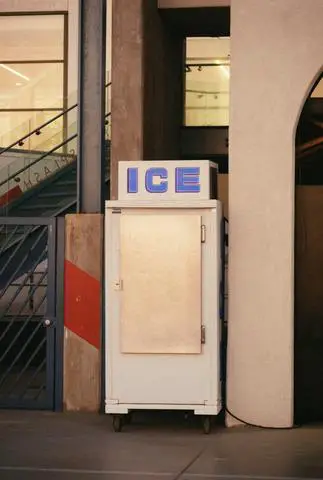You’ve finally acquired the most luscious bag of roasted coffee beans. You set out to brew a delicious cup while you bathe in the enchanting and fresh aroma. Like any other mortal, you want to prolong this bliss and enjoy a similar cup every morning. This brings you to the important question that seems to divide enthusiasts into factions: which is the best way to preserve or store freshly roasted coffee beans?
Does how and where you store your coffee even matter? If so, freezer, refrigerator, or at room temperature in the pantry? In this article, we try to settle coffee storage debate once and for all!
Wait, Does Coffee go Bad?
Whether or not coffee goes bad is a gray area. Why so? When you roast green coffee beans, they lose moisture. As a dry product, roasted coffee does not allow the growth of mold – hence it can’t go rancid.
Then, you might wonder: what’s the purpose of expiry dates on coffee products? And how do you know if your coffee is still fresh? Bad coffee is identified by the loss of its pleasant flavor and aroma. This is what the expiry dates are all about – it describes how long before your aromatic purchase goes stale.
We all love coffee! Unfortunately, our favorite beverage has a few enemies, often described as the “four horsemen of the coffee apocalypse”: moisture, heat, light, and oxygen. Exposing your roasted coffee beans to any of these elements shaves days or even months from the shelf-life. Keep these in mind as we dissect the Room Temperature Vs. Freezer debate – the whole argument turns on these four factors.Oxygen: Oxygen is arguably the ring-leader of the group. This is partly because it is everywhere – oxygen creeps in the moment you break the air-tight seal. When the organic matter (lipids and proteins) in coffee comes into contact with oxygen, its molecular structure is altered. To preserve the fresh aroma of your ground or whole beans, either consume the coffee immediately or store it in special airtight containers.Heat: This deterioration agent may come as a surprise to many. Isn’t heating coffee the whole point of enjoying a hot aromatic cup in the chilly morning? Well, yes – but not before brewing. Exposing your ground coffee or whole beans to heat accelerates chemical reactions such as oxidation that breakdown the flavor. Takeaway: Don’t store your coffee near the oven!

Light: We know that it’s tempting to store your coffee in crystal-clear glass canister. Unfortunately, a transparent jar is not the best storage place. Use an opaque container instead to prevent deterioration from light.
Moisture: Have you ever wondered why roasted coffee seems to attract moisture? Well, that’s because roasted coffee beans undergo a process known as caramelization – whereby they lose moisture and create sugar. The low moisture leaves them willing a ready to absorb any semblance of water in proximity. And if you’ve ever tasted coffee that has been exposed to moisture, you should be well aware of its sour taste. This sets the stage for one of the main arguments against refrigeration – read on.
The Great Coffee Storage Debate
Believe it or not, coffee storage is one of the most debated coffee issues. Asking a coffee enthusiast whether to store freezer/fridge or room temperature is comparable to asking a gamer whether they prefer the Xbox or PlayStation. Each side will passionately stand its ground and defend its cause.
So, which is the best way to preserve/store your beans to ensure maximum freshness and longevity? Read on for our analysis of the arguments regarding coffee storage and our verdict!

Fridge/Freezer Supporters in the Blue Corner
Did you know that freezing could prolong the shelf-life of ground coffee (1-2 years), whole beans (2-3 years), and instant coffee (indefinitely) if it is sealed? And if they are opened, fresh beans last for 2 years while ground coffee is still viable for up to 5 months. A 2016 study appearing in Scientific Reports claimed that storing coffee beans in the freezer or fridge not only preserves their freshness, but it also makes your coffee more flavorful. Brewing coffee is a chemical reaction where you attempt to coax particular compounds from roasted beans. The study argued that grinding cold coffee beans facilitates a more efficient extraction of the tasty compounds during brewing. The low temperature in the freezer expands the coffee beans, yielding a higher volume of coffee during grinding. This study prompted various reputable media outlets such as Gizmodo to endorse the ’blue corner’ of freezing coffee beans.
The findings and assertions of the above study are not isolated. According to the National Coffee Association, storing coffee in your freezer is perfectly safe and does not have a negative impact on the brewing process. However, ensure that the coffee is stored in an air-tight container. This prevents your coffee from absorbing odors in the air surrounding it or suffering from freezer burn.
Opponents in the Red Corner
Over in the red corner, opponents of the coffee-freezing debate aim to debunk the idea of prolonging freshness by freezing as nothing more than a myth. Why so? Because moisture is involved – i.e., one of the four horsemen discussed earlier. This is especially applicable when roasted coffee beans are stored in the refrigerator. If you open the door of your fridge, you’ll notice that there is actually a lot of moisture. This is because the refrigerator is not designed to keep stuff frozen. Regardless of where you come down on the freezer vs. room-temperature debate, the refrigerator ends up being a sub-optimal place to store coffee.
When it comes to the freezer, the debate gets more interesting. The air in the freezer is normally drier, so shouldn’t storing the coffee beans in a frozen state solve the problems of moisture absorption? Not really – there is still the issue of freezer burn and odors floating around in the freezer.

“Are you willing to sacrifice the flavor of your coffee for longevity?” This is a question often raised by opponents of freezing coffee beans. It is important to note that while the study appearing in Scientific Reports provides an exciting and compelling argument, your home does not enjoy the same control measures as a research lab. Your freezer or the packaging of your coffee might not be as airtight as you think. Whenever you open your freezer door, air enters rapidly – carrying moisture along with it. In a nutshell, it is nearly impossible to prevent condensation or transfer of heat from damaging coffee beans that are moved in and out of the freezer.
Be warned! If you decide to store coffee beans at room temperature rather than freezing, you also have to accept the shortcomings of that decision. In particular, the reduced shelf-life. When opened and at room temperature, ground coffee lasts for about 3 months while whole beans have a shelf-life of 6 months. If the coffee is sealed, it can last for up to 9 months (whole beans) or 5 months (ground coffee).
Our Coffee Storage Verdict
It seems that some people choose to stick with the no-freezer rule while others enthusiastically support the idea of freezing coffee beans. Well, who’s right? Is it advisable to store coffee bean in the freezer or not?
We’ve made our decision! Based on the scientific data, anecdotal findings, and our experience in the coffee industry, below are our suggestions for coffee storage:
- Buy small portions to ensure that you have fresh coffee on demand.
- If you choose to freeze your beans, use a deep freezer. Colder temperature and less frequent access minimize the risk of frost burn and moisture.
- Keep coffee an opaque, cool, and air-tight container regardless of your choice of the storage environment.
- The only sure way to preserve coffee is by avoiding the elements. Therefore, storing your coffee beans in an air-tight canister in the freezer is our storage technique of choice.
